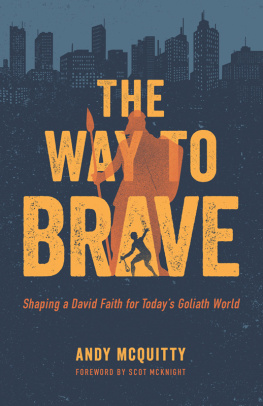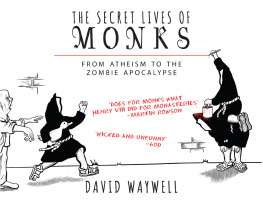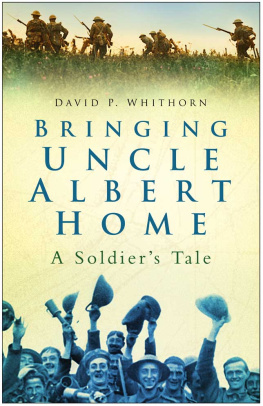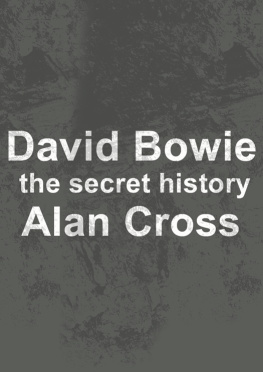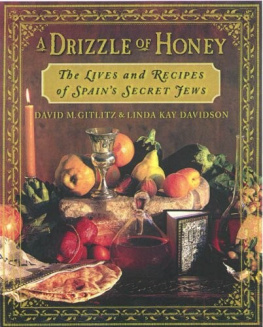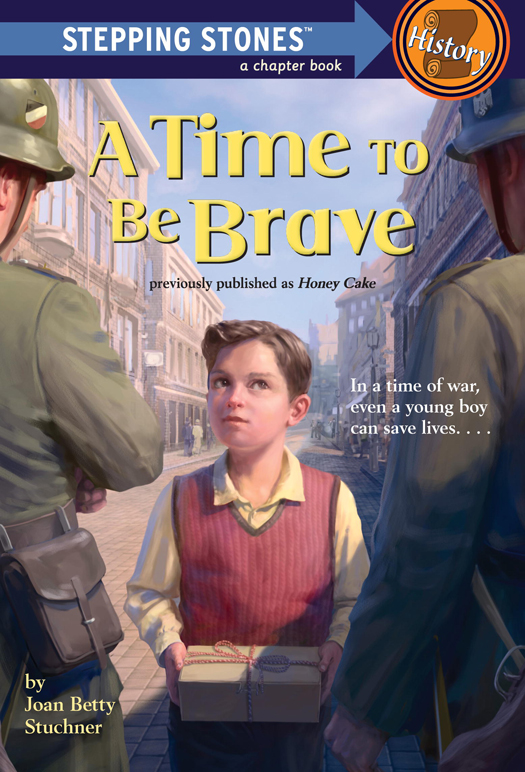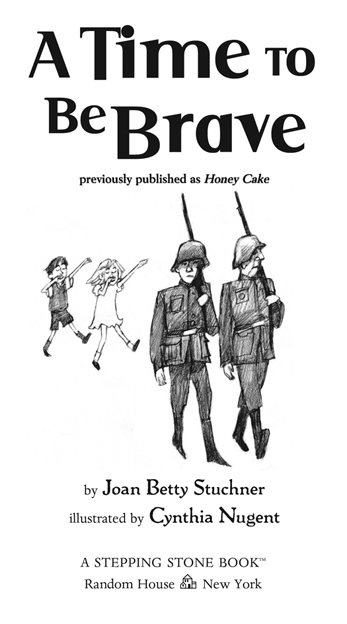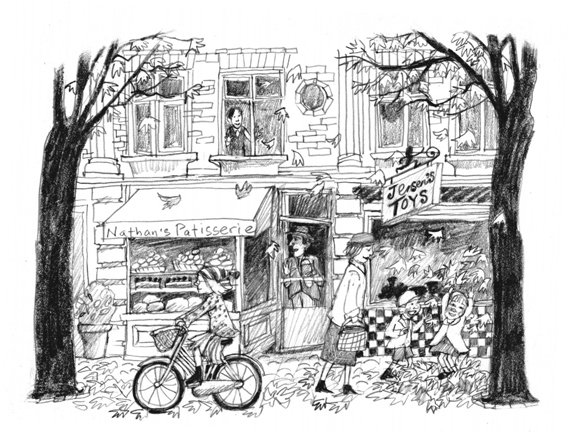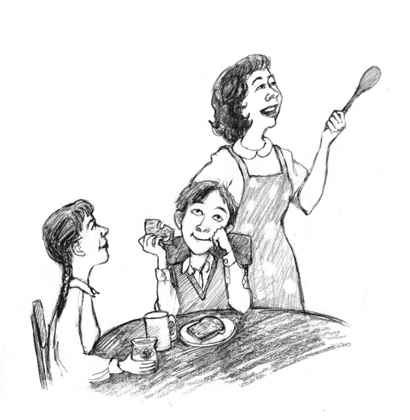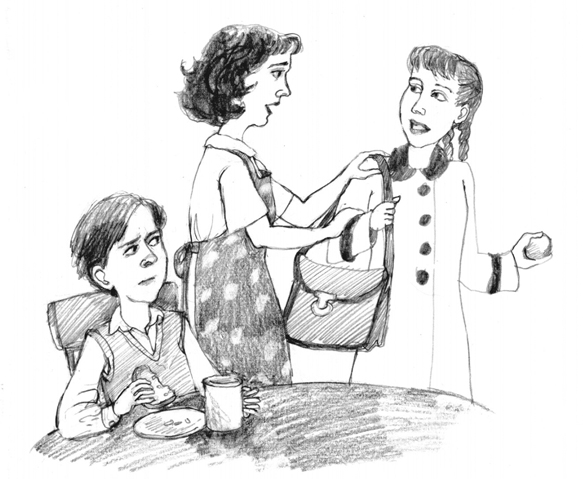This is a work of fiction. All incidents and dialogue, and all characters with the exception of some well-known historical and public figures, are products of the authors imagination and are not to be construed as real. Where real-life historical or public figures appear, the situations, incidents, and dialogues concerning those persons are fictional and are not intended to depict actual events or to change the fictional nature of the work. In all other respects, any resemblance to persons living or dead is entirely coincidental.
Text copyright 2007 by Joan Betty Stuchner
Interior illustrations copyright 2007 by Cynthia Nugent
Cover art copyright 2014 by Chris Beatrice
All photos in The Story Behind the Story courtesy of the Museum of Danish Resistance.
All rights reserved. This 2014 edition was published in the United States by Random House Childrens Books, a division of Random House LLC, a Penguin Random House Company, New York. Originally published in hardcover as Honey Cake in Canada and Great Britain by Tradewind Books, Vancouver, BC, in 2007 and in the United States by Random House Childrens Books, New York, in 2008.
Random House and the colophon are registered trademarks and A Stepping Stone Book and the colophon are trademarks of Random House LLC.
Visit us on the Web!
SteppingStonesBooks.com
randomhouse.com/kids
Educators and librarians, for a variety of teaching tools, visit us at RHTeachersLibrarians.com
Library of Congress Cataloging-in-Publication Data is available upon request.
ISBN 978-0-385-39205-1 (pbk.) ISBN 978-0-385-39206-8 (ebook)
Random House Childrens Books supports the First Amendment and celebrates the right to read.
v3.1_r1
This book is for Tom Kavadias and Dov Stuchner-Kavadias. It is also for the people of Denmark and Sweden, and in memory of His Majesty King Christian X of Denmark.
J.B.S.
For Margret Schfer and Marie Aubin, who took care of me in Berlin, put me on the bus to Copenhagen, and made history come alive for me.
C.N.
ACKNOWLEDGMENTS
Thanks to Bente Nathan Thomsenher story inspired this book. Thanks also to Cindy Heinrichs, Cynthia Nugent, Michael Katz, and Carol Frank. Thanks again to Rick Welch.
CONTENTS
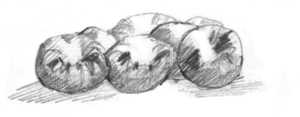
One
Copenhagen, September 6, 1943
D avid, Mama called. Time to get up.
I thought I was dreaming, but when I opened my eyes I realized that it really was a school day. A ray of sunlight poked out from beneath the heavy blackout drapes. Before the occupation my window drapes had been pale blue and much nicer. Breakfast smells reached me, and I jumped out of bed and opened the drapes.
It was early autumn, and the leaves on some of the trees had begun to turn from green to yellow. Soon theyd be orange, then red. I had hoped that by the time Jewish New Year came around, the leaves would form a crunchy brown carpet covering the streets of Copenhagen. Autumn is my favorite time of year. Of course, Copenhagen is the most beautiful city in the world, any time of year. Even Nazi soldiers couldnt make Copenhagen ugly.
That morning, over breakfast, Mama said, Ill bake a honey cake for Rosh Hashanah to make the New Year sweet. My big sister, Rachel, and I bit into our slices of dry toast. Breakfasts werent as tasty since the Nazis had occupied Denmark. They sent most of our good food to Germany. Still, as Papa told us whenever we complained, In other occupied countries people suffer much more than we do here in Denmark.
Rachel washed down the toast with chicory coffee and pulled a face. Rationing had put an end to real coffee. A sweet year, she said, would be a year without Nazis.
Mama nodded. It would also be wonderful to have real coffee again, she said.
Rachel and I laughed as Mama poured her cup of chicory coffee into the sink.
Why doesnt Papa bake the honey cake? I asked with a straight face. I didnt mean to suggest that Papa could make better cakes. But after all, he was a baker.
Mama gave me a sharp look. Ill have you know, David, that your papas not the only member of the Nathan family who can bake cakes.
Rachel winked at me across the table. Nathans Patisserie, Papas pastry shop downstairs, was still the best in Copenhagen, even though good ingredients were getting harder and harder to find. His assistant, Mrs. Jensen, had a seaside cottage in Humlebaek. Some of her neighbors there ran small farms. They secretly sold Papa butter and fresh cream. If the soldiers found out, they would be very angry.
Most of the time Mama took care of the apartment. On weekday afternoons, if it got busy in the pastry shop, she helped serve behind the counter. Still, even though Mama didnt bake for the shop, no one in the world made a tastier honey cake. She only baked it once a year for Rosh Hashanah. Papa was the first to admit, When it comes to honey cake, children, your mama beats me hands down. So I suppose thats why wed never tasted Papas.
As I ate the last bit of dry toast, I pretended it was Mamas honey cake. My mouth watered.
Rachel checked her watch and got up quickly. I have to go, she said, picking up her schoolbooks and coat.
So early? said Mama with a frown.
Rachel was always in a hurry these days. She left home early and came home late. Sometimes she didnt come home at all.
I have to give Papa something, she said.
Mama looked worried as Rachel kissed her goodbye. Bye, David, Rachel said to me. But she looked as if her thoughts were already miles away.
After Rachel had gone, Mama said very little. There was no point in my asking questions. Whenever I mentioned that Rachel was hardly ever home, Mama would say, She has to study hard at the university, David. Theres a lot of pressure, with papers to write and final exams to worry about.
The old Rachel wouldnt have been so serious, even about exams. On the other hand, it seemed as if the whole world had become serious, waiting for the worst to happen. Only what could be worse than being occupied? What could be worse than not being free?
I finished my breakfast and helped Mama wash the dishes.
Will the Jensens eat Rosh Hashanah dinner with us as usual? I asked.
Of course, said Mama. The Jensens are family. Mama always said that everyone in Denmark was like family. That didnt stop us from missing our real family. Theyd moved to England before the war.
Aunt Bente, Uncle Leo, Cousin Lars, and even Grandma lived in London. Sometimes they sent letters. They planned to return to Copenhagen when the war was over. I knew they must be very homesick.
Elsas probably waiting for you in the pastry shop, said Mama. I kissed her and ran downstairs.



